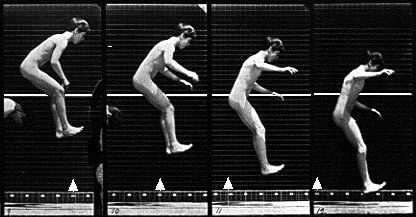
Fashioning the Body: Versions of the Citizen, the Self, and the Subject
The Evergreen State College | Fall 2007-Winter 2008
User Login |
E-Corpus: Masculin/Feminin; My Life to LiveI’ve watched two Jean Luc Godard films this quarter with my housemate who is doing a video contract based around Godard. I’ve watched Masculin/Feminin and My Life to Live. One of my favorite parts of Masculin/Feminin is the fake survey questions that Jean-Pierre asks throughout, combined with actual real-time interviews about love, love-making, and politics. This reminded me of the survey questions we came up with in class, and the discussion of the form of the form. Apparently, these are the questions that Goddard wants to ask “the children of Marx and CocaCola.” The questions are personal, political, sexual, philosophical, literary, and sometimes nonsensical. The film’s characters are in the condition of being young, curious about sex, and caught between communism and capitalism, revolutionary ideals and teen pop. Godard’s thoughts on the over-the-top masculinity and femininity of American Hollywood gender roles is seen in a film-within-a-film parody. http://youtube.com/watch?v=gF8Fey0qNDg Here is a clip of an interview in the film with Miss 19, the actual teen It-Girl of 1966 Paris. In My Life to Life, the main character is down on her luck and seems to not want to run back to the shelter of a man who bores her but loves her. Even though she has a job at a record store, she cannot pay rent, and becomes a prostitute. The film is a critique of liberal humanist idea of being responsible for all your own actions and things that happen to you. Even though her philosophy is that she is responsible for her own life, even the smallest things show that she has no control over her life at all actually. Eventually she is shot when she is being traded for money against her will- she has become a sex slave and is unable to get out of the system she thought was about supply and demand, with her in some degree of control over events, who she sleeps with, and how much she makes. It’s all a fascade. I don’t think Goddard is suggesting that we have no agency over our lives, but is instead showing how we can become trapped in a mindset, a mode of discourse that then actually does entrap us materially. (Before she becomes a prostitute, a prostitute friend tells her that she should leave and go to the tropics, which she thinks is totally ridiculous. It seems less ridiculous than becoming a sex slave.) There is so much more to say about this movie, but one of the reasons I wanted to talk about it is because of the theme of prostitution in our readings this quarter.
Submitted by Jenny on Fri, 12/07/2007 - 12:44am. Jenny's blog | login or register to post comments | printer friendly version
|
Who's onlineThere are currently 0 users and 1 guest online.
Events
|
|||||||||||||||||||||||||||||||||||||||||||||||||